- Home
- Vince Flynn
Mitch Rapp 05 - Memorial Day Page 35
Mitch Rapp 05 - Memorial Day Read online
Page 35
Rapp leaned back on the pole with his right hand and used his left hand like a fulcrum to lift al-Adel’s head and shoulders out of the water. The terrorist hung onto the basket like a rat clutching a piece of flotsam from a shipwreck.
“Ahmed,” Rapp said in a loud voice. “If you say you want your lawyer even once, I’m going to rip this away from you and let you sink to the bottom. All right?”
He didn’t answer right away so Rapp shook the pole.
“Yes! Yes! I understand!”
“Now, Ahmed, listen to me very carefully. Where were you taking the bomb that you picked up in Charleston?”
Al-Adel clutched the basket at the end of the pole, his eyes shut tight, his entire body shaking with fear.
Rapp repeated the question even more forcefully and then started counting. When he got to five and al-Adel hadn’t answered he released all tension on the pole and drove the basket and the clutching terrorist down under the surface of the water. Rapp held him under for only two seconds, but he knew it was an eternity to a man who didn’t know how to swim. He leaned back hard on the pole, and a sputtering al-Adel popped to the surface. Rapp shouted the question again, but this time didn’t even bother to wait for an answer. He saw al-Adel open his mouth wide, gasping for air, and drove him right back under.
Rapp pulled him back up a split second later, and this time he was rewarded with an answer. Al-Adel screamed the two words, spit out a mouthful of water, and sucked in a gulp of air for his starving lungs. Rapp couldn’t believe what he’d just heard. He looked across the pool at McMahon and then repeated his question yet again.
Al-Adel gave the same answer again, and when Rapp threatened to send him back under he began blabbing in earnest, spewing out detail after detail as he clutched for dear life to the aluminum pole.
Rapp and McMahon had a plan. They’d had thirty minutes to discuss it and to try to poke holes in it. They had spoken briefly to their bosses; Rapp to CIA Director Kennedy, and McMahon to FBI Director Roach. They would discuss nothing over the phone. No, they would not tell them where the missing prisoner was. They were on their way to the White House where they would meet them in the Situation Room at midnight. Neither boss was happy about this, but neither Rapp nor McMahon cared. They would face all their accusers in one room, and truth be told, it wasn’t their bosses who had them worried. They would do the right thing. It was the others, the president included, who they were wary of.
The president needed to see firsthand that there were people in his administration, people who had been chirping in his ear, whom he should not be listening to on issues of counterterrorism and national security. Once Rapp told the president what they had found out, these very people would inundate him with bad advice, bad advice that could lead to the premature detonation of the second weapon.
It was for that reason alone that Rapp and McMahon had decided to keep everything from their bosses until everybody was in the same room. To do this right they needed to give their detractors the chance to go berserk and lose their cool, to promise to take away their jobs and pensions, and to threaten them with prosecution, and they needed them to do it all right in front of the president. Because when the other shoe dropped, they would be left looking like utter fools.
Secret Service Agent Jack Warch was waiting for Rapp and McMahon under the awning on West Executive Drive. Rapp had called Warch and asked him to meet them. He was wearing his tuxedo from the state dinner, and he looked worried. As Rapp and McMahon stepped onto the curb he said, “Just what in the hell is going on?”
“Too much to explain, Jack. You’re just going to have to trust me on this one.”
“You know I’m not supposed to get involved in stuff like this, but you’ve got some really pissed-off people in there. Jones wants your balls on a platter, and so does that other broad from the Justice Department. Even your bosses don’t sound too supportive, and the president…well, let’s just say I haven’t seen him this mad in a long time.”
“Good,” Rapp said and he meant it. “Is the president in the Situation Room?”
“He’s on his way over.”
Rapp checked his watch. “I need you to do me one other favor, Jack. Irene told me Marine One is here.”
“That’s correct.”
“How long before it’s ready to take off?”
“Five minutes.”
“And how late does the president usually stay at this type of event?”
“Normally about midnight is his limit, but this one’s a pretty big deal. Where the hell are you going with all of this, Mitch?”
“In about five to ten minutes, the president is going to come out of this meeting and he’s going to tell you he wants to go up to Camp David tonight, because he wants to get up early and play a round of golf with the British prime minister and the Russian president.”
“The Russian president doesn’t play golf.”
“Then he’s going to ride in the cart. I don’t give a shit. All I’m telling you is that I want all three of them and their wives on Marine One in fifteen minutes. I want them safely out of the city, and I don’t want the press to get the slightest whiff as to the real reason why they’re leaving. Do you get my drift?”
The head of the president’s detail slowly nodded. “I think so.”
“Good, and, Jack, you never heard this from me. This was the president’s idea. He thought it would be a good idea to spend some time alone with his fellow leaders in a more low-key environment. Spread that around to your agents. That way if they get hit up by the press they’ll be none the wiser.”
Rapp could tell Warch was thinking of something else. Taking a stab at it he said, “Relax, you live up by Rockville, right?”
“Yeah.”
“Your family’s fine. Just make sure they don’t try to come downtown tomorrow.”
Rapp’s phone rang. He checked the number and answered it. “What’s up?” He listened for about twenty seconds and then said, “Thanks,” and hung up.
Rapp looked at McMahon. “They just finished the polygraph. Everything checked out.”
“Any chance he beat it?” McMahon asked.
“No way. I don’t think even I could fool these guys.”
Warch put his hand up and touched his flesh-colored earpiece. Both McMahon and Rapp knew someone from his detail was talking in his ear. Warch turned and said, “Let’s go. The president is in the Situation Room.”
They followed him through the door, past the uniformed Secret Service officer standing his post and down the hall toward the White House Mess. Two turns later they passed two tuxedoed agents and entered the Situation Room. All chatter ceased for one brief moment and then a torrent of accusations, insults, and threats spewed forth.
WASHINGTON, D.C.
As they had planned, both McMahon and Rapp stood in silence and took the abuse. In the room were both their bosses, National Security Advisor Haik, Attorney General Stokes, the president, Chief of Staff Jones, and Peggy Stealey. Everyone was sitting with the exception of Rapp, McMahon, and the two people doing most of the talking, or more accurately, the yelling.
National Security Advisor Haik didn’t say a word, and their bosses were also silent, but by the looks on their faces they’d just gone through one hell of a tongue-lashing. Attorney General Stokes sat next to the president, and although he wasn’t talking, he looked extremely disappointed that two men who should clearly know better would be so reckless. The president for his part was clearly angry. His tense jaw and the fact that he made absolutely no effort to rein in the two screaming women on the other side of the table told the whole story.
Rapp actually enjoyed it. Knowing what was coming next allowed him to do that. To make matters even more interesting, he was beginning to get the impression that both Jones and Stealey were not quite sober. The Situation Room wasn’t that big, and from across the table he could smell the alcohol on their breath. In addition they’d each slurred a few words and their eyes had that semiglassy look that
people get when they’re either tired or have had one too many cocktails.
Rapp waited for a pause and then asked in a confident, nonemotional tone, “Are you done?”
The manner in which he asked the question sent the two women to new heights of indignation. Jones thrust a ringed finger at him from across the table and yelled. “That’s it!” She turned her attention to the president. “I have been warning you for two years that he is a loose cannon! I told you that he was going to do something that would embarrass you and this administration, and now he’s done it!” She looked back at Rapp. “Do you have any concept of the law? Do you have any idea the position you have put the president in?”
Stealey must have felt left out because she picked this as the moment to glare at McMahon and shake her head in disgust. “I would expect more from a man who has put in thirty years at the Bureau, a man who has sworn to uphold the law.”
“It’s a foregone conclusion,” yelled Jones. She looked right at Director Kennedy and Director Roach. “They’re both fired! Right here! Right now! It’s over! I want them both fired right now!”
Kennedy watched all of this carefully. She had not yet had the chance to tell the president or the others about the events in Richmond and Atlanta. Rapp had asked her to wait until he arrived at the White House. Director Roach had received the same request from McMahon.
Kennedy knew Rapp could be reckless, but that was part of the territory. She knew he had a problem with following rules, but she also knew he was no fool. He was holding something back, for if he had truly screwed up as badly as these two women were claiming, there was no way he’d stand here and take it. In fact there was no way he’d be here at all. He had a healthy dose of pride that precluded him from suffering the criticism of anyone he did not respect. Even more telling was McMahon’s participation. Kennedy knew him well enough to understand that there was no way he would ever take part in anything so drastic unless there was good cause.
“Well,” Jones said to Kennedy and Roach, “I’m waiting.”
“Okay,” announced Rapp as he looked at his watch. “Amateur hour is over. You two can either sit down and shut your mouths, or leave. It’s up to you.”
The president slapped his hand down on the table and yelled, “Damn it, Mitch, I have had enough of your reckless antics. I don’t care what you’ve done in the past, I can’t protect you any longer. You have become a major liability, and your irresponsible behavior can no longer be tolerated.”
“Do you have any idea what the media is going to do to us over this?” asked Jones.
“Do you have any idea that al-Qaeda has smuggled a second nuclear weapon into the country?” Rapp leaned forward, placing both hands on the table. “That’s right, Mr. President, so before you get rid of me, please allow me to save your ass one last time. While you’ve been busy listening to these two idiots,” Rapp pointed at Jones and Stealey, “chatter in your ear about the ills of the Patriot Act, and the upcoming election, and how good a running mate Attorney General Stokes would make, we’ve been out busting our asses trying to figure out what these terrorists are up to, and you are not going to like what we found out.
“Earlier this evening, we received a call from the CDC down in Atlanta. A local hospital had called to inform them that they had an out-of-state truck driver who had just died from Acute Radiation Syndrome, an illness that is very rare. The CDC, DOE, and FBI located this man’s truck and trailer and found that they were contaminated with Pu-239, which is the isotope used in the production of weapons-grade nuclear material. We found out the truck driver picked up a load in Mexico and crossed over the border on Wednesday morning headed for Atlanta.”
Rapp turned his attention on Stealey. “Atlanta, if you will remember, was also the destination of Imtaz Zubair, the missing Pakistani nuclear scientist. It also happens to be the home of Ahmed al-Adel, who was arrested in Charleston this week. The same man you decided to prosecute rather than deport and hand over to the CIA.”
Stealey stood so she could face Rapp eye to eye and started to lecture. “You have no idea what you’re talking about. We can’t simply deport American citizens and hand them over to the CIA for torture.”
Rapp cut her off with a booming voice that was almost a full-blown yell. “The debate portion of the evening is over. You are an idiot! You have no idea what you are talking about, and you have no idea what it takes to wage this war. Now sit down, and don’t interrupt me again or I will throw you out of this room by the scruff of your neck.” Rapp pointed his finger at the president’s chief of staff and said, “And that goes for you too, Valerie.”
Stealey slowly sat back down and Rapp continued. “As I was saying…considering the gravity of the situation, I took it upon myself to interrogate Ahmed al-Adel, who has refused to talk to anyone except his lawyer, and who has proclaimed he is a patriotic American. Before anyone tries to get back on their constitutional high horse, I’d like to remind all of you that this was the same man who tried to pick up a twenty-kiloton nuclear weapon, which would have killed upwards of 100,000 people and destroyed this building and most of the city.
“After just five minutes of persuasive questioning, Mr. al-Adel admitted that he was in fact part of a terrorist cell that was planning to detonate a nuclear weapon on American soil. There is only one problem, though. The bomb that Mr. al-Adel picked up in Charleston was not meant for Washington, D.C. It was meant for New York City. The second bomb is intended for Washington, D.C. The one that came across the border from Mexico on Wednesday morning.”
The room was dead silent for at least five seconds and then the president, concern and embarrassment represented equally in his voice, asked, “Do we have any idea as to the location of the second bomb?”
“Yes,” said Rapp, “but I’m not going to tell you. Not until you’re on board Marine One with the British prime minister, the Russian president, and your wives, and on your way to Camp David.”
The president started to protest, but Rapp shook his head firmly. “Not until you’re up at Camp David. I know the time and the specific target of the attack. The only chance we have of stopping them is to make everything appear as if it’s business as usual. That is why your press secretary is going to announce that you and your fellow leaders decided to head up to Camp David tonight so you could play an early morning round of golf, before coming back into the city for tomorrow afternoon’s dedication ceremony.”
The president gave Rapp a disapproving look. He was not used to taking orders, but knew he had put himself in this situation by not heeding the advice of Kennedy. He turned to his director of the Central Intelligence Agency. “What do you think?”
“I think you should go to Camp David.”
“What about Operation Ark?”
Kennedy did not think an evacuation of key people was a good idea, but decided that she would keep that to herself for now. “I think the most important thing right now is to get you and your fellow leaders out of the city. Once you are up at Camp David we can discuss the rest.”
POTOMAC RIVER
Saturday morning dawned with heavy gray skies and a steady rain that peppered the calm surface of the bay. The hypnotic effect of the rain falling on the water served as the perfect backdrop for their morning prayer. They’d made their way down the York River and out into the Chesapeake under the cover of darkness, and were now headed north. The thirty-seven-foot cabin cruiser owned by Mr. Hansen was more than up to the task, especially on calm seas. Its GPS navigation system helped them to maneuver through these foreign waters.
Like al-Yamani, Hasan and Khaled had also learned basic seamanship on the Caspian. They had been in charge of receiving and preparing the fresh martyrs who were shipped in from around the region. They would house them for a day or two, waiting for al-Yamani to return with the flat-bottom barge, and then they would have nothing to do until the next batch arrived. During those inactive times they were ordered to learn the ways of the water. Money was not an issue, so whenever the
opportunity arose, they would rent a boat and practice on the calm waters of Gorgan Bay at the southeast edge of the Caspian.
Despite everything they’d learned, though, there was no way they could have memorized the craggy outline and bays and inlets of the Chesapeake. The GPS and chart that was onboard had been lifesavers, for they had never planned on navigating this body of water at all. The original plan had called for them to put in at Dahlgren on the Potomac River forty miles due south of Washington. The route following the river was a bit longer, but not significant compared to the 200 miles they now had to travel in the rain and with poor visibility.
Al-Yamani was on his knees, but he was not praying. He was in the head, throwing up yet again, and it was not a pretty sight. He could no longer keep down even a morsel of food. His thirst was insatiable, but with every cup of water came more vomiting, and the fluid had gone from a pinkish tinge to dark crimson. He placed his hand on the edge of the tiny toilet and locked his elbows as he braced himself for another stomach-tearing hurl.
The wave of nausea passed, and al-Yamani was left hovering over the toilet, a thick dribble of blood and spit hanging from his mouth. His entire body was covered in sweat and he was shaking. This would be his last day on earth, whether they succeeded or not, but he did not believe they would fail. Not after yesterday. Allah was guiding them, showing them a safe passage to their destiny.
They were all going to die. He had been forced to lie to the scientist about that, but he felt no shame in doing so. Certain people were not strong enough to handle the truth. The scientist had spent most of the trip sitting in the bed up under the bow of the ship, as far away from the bomb as possible. Zubair had been adamant that the bomb be lashed to the fiberglass swim platform at the aft of the vessel. Even though they’d gone to great lengths to shield it, the weapon was still giving off significant radiation. Because of that it had to be placed downwind and as far away from them as possible.

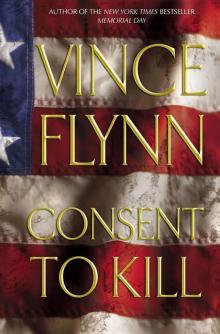 Consent to Kill
Consent to Kill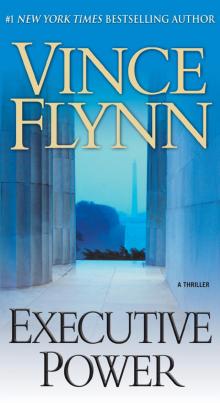 Executive Power
Executive Power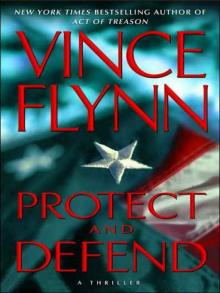 Protect and Defend
Protect and Defend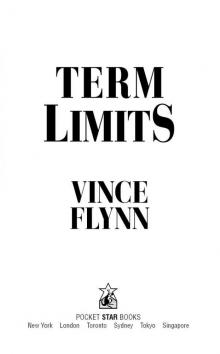 Term Limits
Term Limits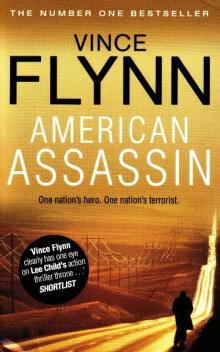 American Assassin
American Assassin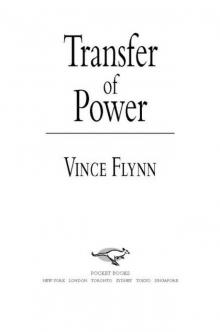 Transfer of Power
Transfer of Power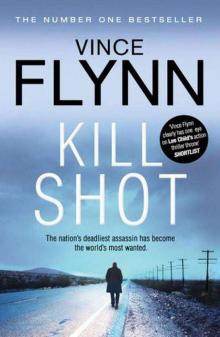 Kill Shot
Kill Shot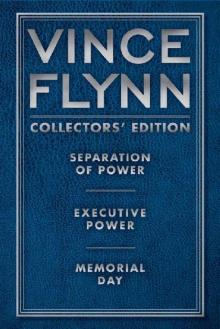 Vince Flynn Collectors' Edition 2
Vince Flynn Collectors' Edition 2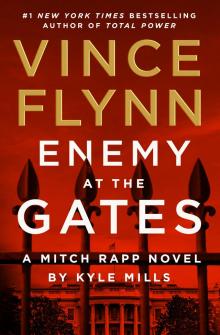 Enemy at the Gates
Enemy at the Gates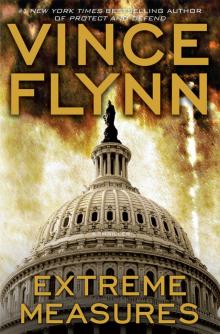 Extreme Measures
Extreme Measures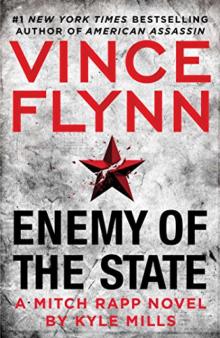 Enemy of the State
Enemy of the State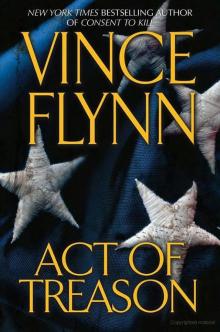 Act of Treason
Act of Treason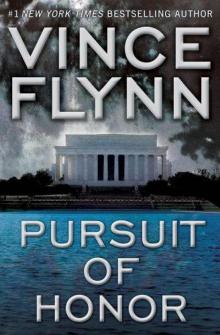 Pursuit of Honor
Pursuit of Honor The Survivor
The Survivor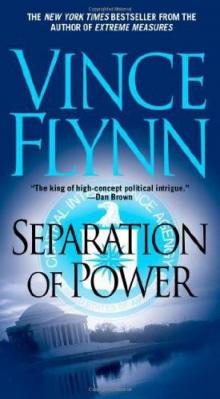 Separation of Power
Separation of Power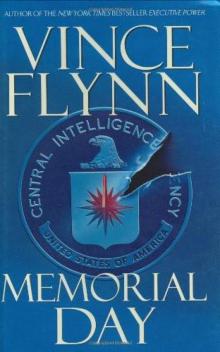 Memorial Day
Memorial Day The Last Man
The Last Man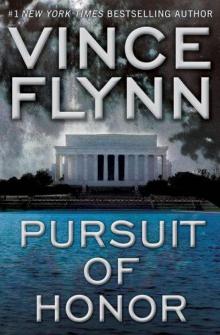 Pursuit of Honor_A Thriller
Pursuit of Honor_A Thriller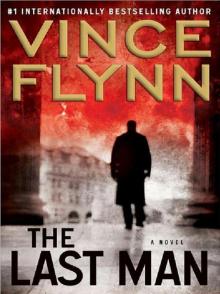 Mitch Rapp 13 - The Last Man
Mitch Rapp 13 - The Last Man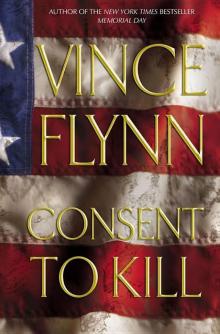 Consent to Kill:
Consent to Kill: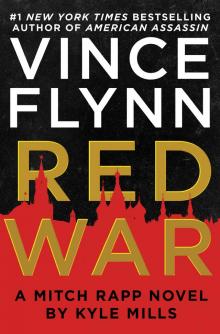 Red War
Red War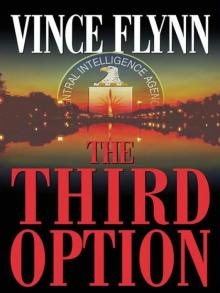 Mitch Rapp 02 - The Third Option
Mitch Rapp 02 - The Third Option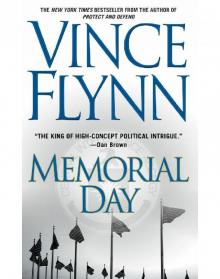 Mitch Rapp 05 - Memorial Day
Mitch Rapp 05 - Memorial Day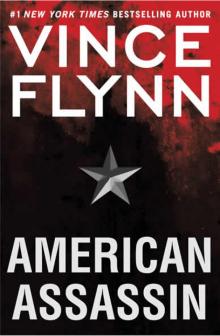 Mitch Rapp 11 - American Assassin
Mitch Rapp 11 - American Assassin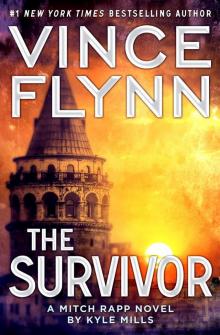 Mitch Rapp 14 - The Survivor
Mitch Rapp 14 - The Survivor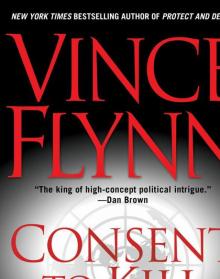 Mitch Rapp 06 - Consent to Kill
Mitch Rapp 06 - Consent to Kill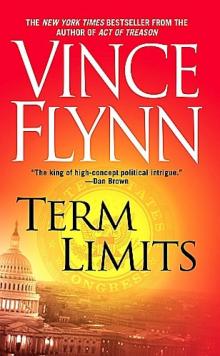 Term Limits mr-1
Term Limits mr-1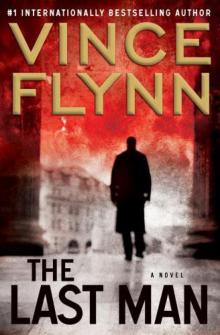 The Last Man mr-13
The Last Man mr-13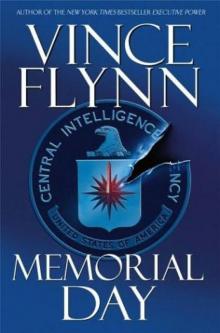 Memorial Day mr-5
Memorial Day mr-5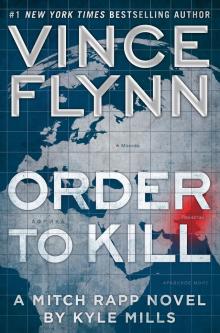 Order to Kill
Order to Kill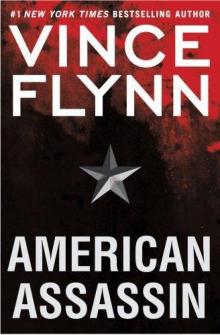 American Assassin: A Thriller
American Assassin: A Thriller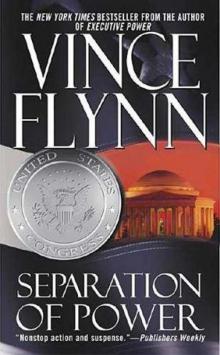 Separation of Power mr-3
Separation of Power mr-3